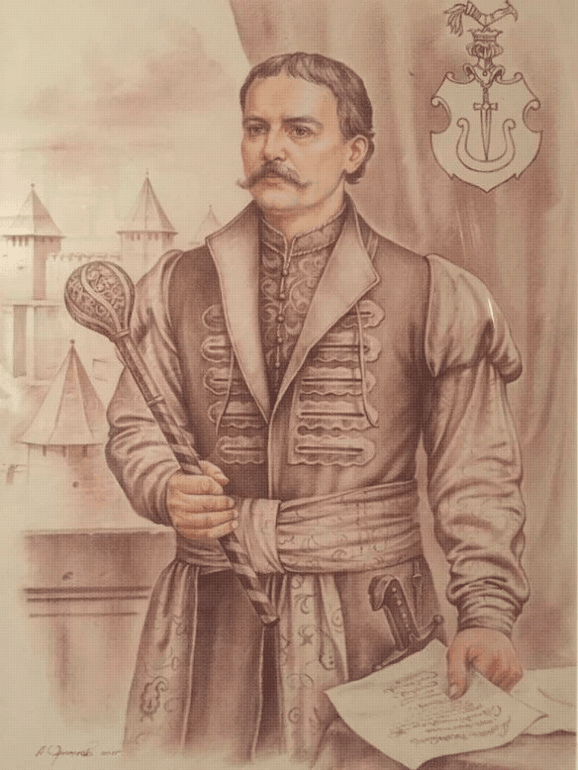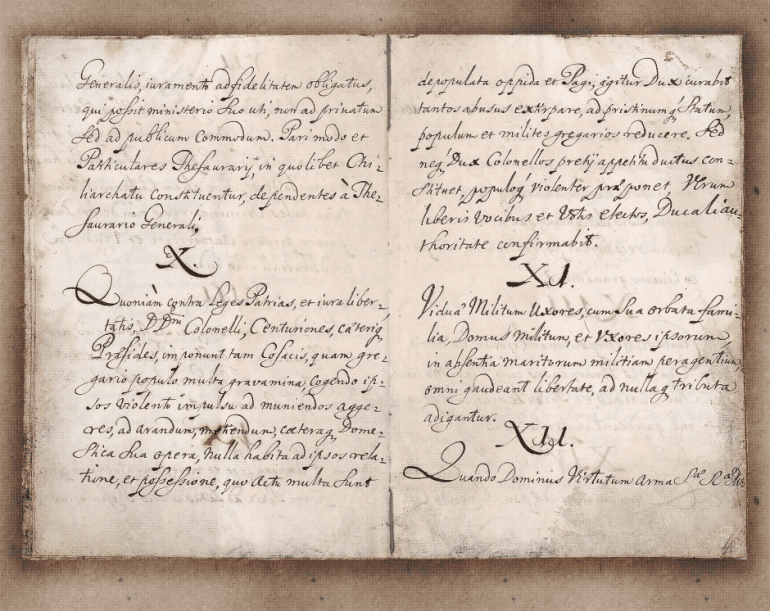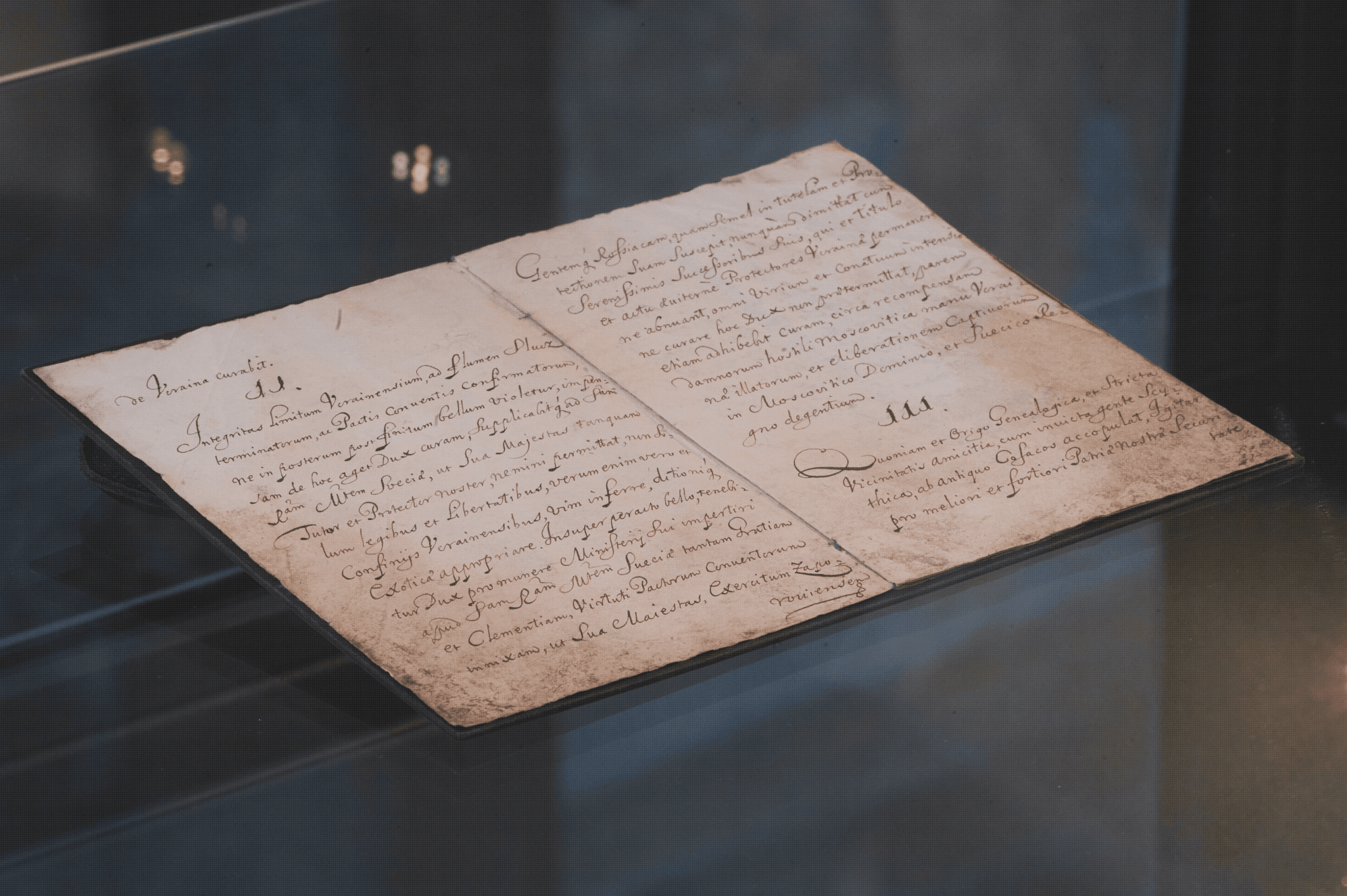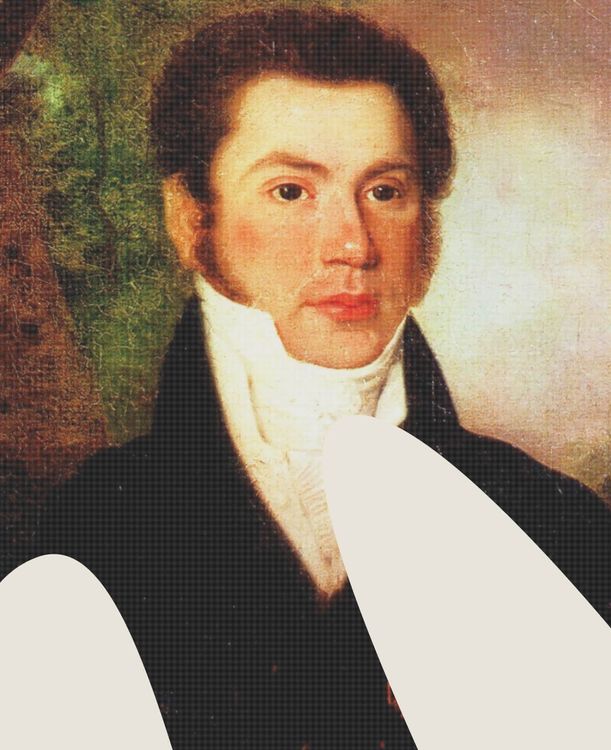Orlyk’s Constitution

The Ukrainian Constitution of Pylyp Orlyk can be regarded as the first Constitution of Europe. It preceded the French Spirit of Laws by almost 40 years and attested to the political maturity of the Cossack state.
1710
Fonts:
Mars Type
Designer:
“Every state arises and exists due to the inviolability of its borders,” read Article 2 of the 1710 Ukrainian Constitution.
“The sovereignty of Ukraine extends throughout its entire territory,” echoes Article 2 of the 1996 Ukrainian Constitution. In between them passed almost 300 years of oppression, as Ukraine was dominated by the Russian Empire and the Soviets, whose descendants have not given up their imperial ambitions even by now. And as Ukraine fights them once again, the first Ukrainian Constitution collects dust somewhere in a Russian archive.
The adoption of the Constitution was preceded by a change of Hetman. After the defeat in the Battle of Poltava (1709), when Charles XII of Sweden's and Hetman Ivan Mazepa's armies were defeated by Peter I of Russia, Mazepa fled to Moldova and soon died. Hence, his former general scribe, Pylyp Orlyk, became the Hetman of the Cossack state.

Upon his election in 1710, Orlyk concluded an agreement with the Zaporizhian Cossacks — “Pacts and Constitutions of Rights and Freedoms of the Zaporizhian Host,” which was also signed by the Kish Otaman, the Cossacks’ leader Kost Hordiienko.
For the first time in Europe, a model of a free and independent state based on the people’s natural right to freedom and self-determination was developed.

Written in Latin and Old Ukrainian, the document consisted of a preamble and sixteen chapters. The preamble presented a brief overview of Ukrainian history since ancient times. In addition, it provided a brief discussion of the history of Kyiv with arguments that Russia has no rights to it.
In the Constitution’s chapters, the Ukrainian state was described as a sovereign republic under the protection of the Swedish King. The document clearly defined the division into three branches of government. The Hetman along with the Council of the General Officer Staff received the highest executive authority; the same responsibilities are assigned today to the President and the Cabinet of Ministers. The General Council was the analog of the modern Verkhovna Rada (the Parliament of Ukraine) or the legislative branch. The judicial branch of the government was the General Court.
The Latin copy is stored in the National Archives of Sweden. On Ukraine’s Independence Day in 2021, it was brought to Ukraine and exhibited in Saint Sophia Cathedral in Kyiv.

As for the Old Ukrainian original, it was only discovered in 2008, and sadly, in the Russian State Archive of Ancient Acts in Moscow.
While Ukrainians are fighting to get back their territory occupied in the war, Ukraine should also reclaim its history.
Fonts:
Mars Type
Details:
Orlyk’s Constitution
Designer:
About font:
Next letter and event

Orlyk’s Constitution
this project
in social
“Shchedryk” (The Little Swallow)

Mariupol

“Plyve kacha po Tysyni...” (“Swims the duckling, on the Tysa...”)

Budynok “Slovo” (The Slovo Building, or "The Word")

“Yak umru to pokhovaite...” (When I am dead, bury me...)


Falz-Fein and his “Askania Nova”

“Plyve kacha po Tysyni...” (“Swims the duckling, on the Tysa...”)

Khreshchenia Rusi (Christianization of Kyivan Rus’)

Georgiy Gongadze


Zhyvyi lantsiuh (Human chain for the 71st anniversary of the Act Zluky)

Zaporizka Sich (The Zaporizhian Host)

“Smilyvi zavzhdy maiut shchastia” (“The brave always have happiness”)

Antonov AN-225 Mriya ("The Dream")


Aeneid by Ivan Kotliarevsky


Shliakh iz variah u hreky (Route from the Varangians to the Greeks)

Creative & Tech Online Institute
Медіа про дизайн, креатив і тех індустрії

Ukrainski sichovi striltsi (The Ukrainian Sich Riflemen, or the USS)

Holodomor


Aeneid by Ivan Kotliarevsky

Orlyk’s Constitution

Volia — collective concept, most often translated as Freedom

Holodomor

Mariupol

Yuzivka

Chornobyl Disaster

1991 Ukrainian Independence Referendum

Peresopnytske Yevanheliie (The Peresopnytsia Gospel)


Aeneid by Ivan Kotliarevsky

“Smilyvi zavzhdy maiut shchastia” (“The brave always have happiness”)

Mariupol

“Yoi, nai bude!” (Ah, let it be!)




